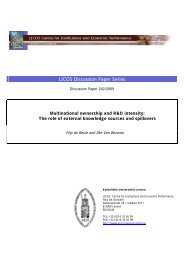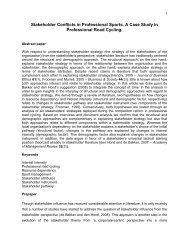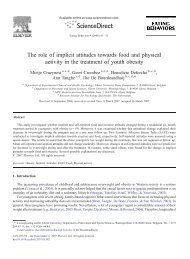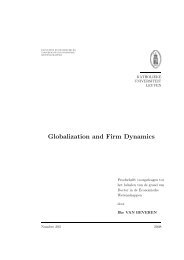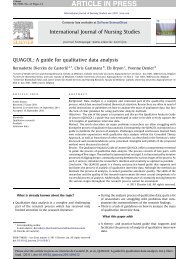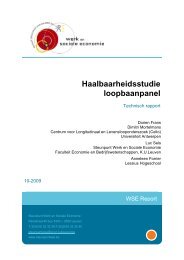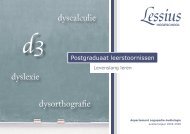View/Open - Lirias@Lessius
View/Open - Lirias@Lessius
View/Open - Lirias@Lessius
Create successful ePaper yourself
Turn your PDF publications into a flip-book with our unique Google optimized e-Paper software.
116<br />
M. ERGÜN OLGUN, DIRK ROCHTUS<br />
eral concertation, coordinating and information-sharing mechanisms between<br />
the federal and the sub-national levels exist.<br />
4. There are no unitary, but only regional parties, for which people can vote in<br />
their own region. 7<br />
The federal system can therefore be characterized as being:<br />
1. Asymmetrical. Powers are technically dedicated in a similar way to similar<br />
entities, but these entities may organize their institutions differently. For example,<br />
a combination of the Flemish community and regional institutions has been<br />
carried through in order to create one single Flemish Parliament and one single<br />
Flemish Government.<br />
2. Guided by the territoriality principle.<br />
The competences of the communities<br />
and regions are generally exclusive and always restricted to their territory. For<br />
example, the French-speaking Community is not competent towards Frenchspeaking<br />
persons in the Flemish Region and vice versa.<br />
3. Bipolar.<br />
Despite the existence of three regions and three communities, the<br />
system is bipolar or, more negatively, even antagonistic, as there are two major<br />
language groups, which have to cooperate and discuss with each other. Several<br />
protective measures prevent the dominance of one group by the other (e.g. parity<br />
in the ministerial council and the “alarm bell” procedure in the federal parliament).<br />
4. Centrifugal.<br />
There is a tendency towards devolution, which lies in the nature<br />
of autonomous regions. Those who have powers or competences want to extend<br />
them.<br />
Can Belgium be a model for other multi-ethnic or multi-linguistic states? Before<br />
we focus on the comparison between Belgium and Cyprus, we must answer<br />
the principal question: how and why can a state, which suffered for more than<br />
a year from a heavy political crisis since the parliamentary elections of June 10,<br />
Belgium’s history of seeking<br />
solutions to the problems<br />
related to the cohabitation of<br />
different ethnic and linguistic<br />
groups has been marked not by<br />
violence but by dialogue<br />
2007, still pretend to be a model? It has<br />
to be understood that crises and problems<br />
are a natural part of our lives. Belgium<br />
has developed the skills for dealing<br />
with domestic political crises and<br />
problems through a sometimes time<br />
consuming and cumbersome evolution-



